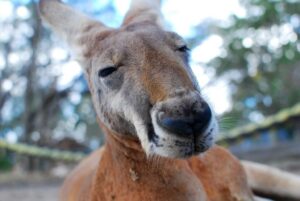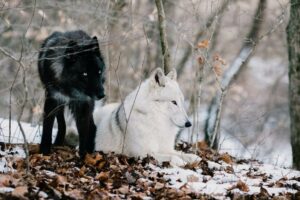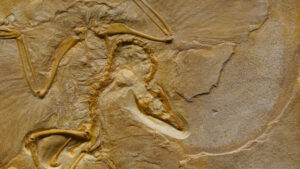Vultures have long been misunderstood and maligned in various cultures across the world due to their association with death and disease. Often portrayed as ominous creatures, these birds play a critical role in our ecosystems. In this comprehensive exploration, we will delve deep into the world of vultures, uncovering their extraordinary abilities, ecological significance, and their often overlooked positive impact on humans and the environment.
Vultures are typically perceived as harbingers of doom, hovering over carcasses and feeding on the remains of animals. Their bald heads, sharp beaks, and ominous presence have contributed to their reputation as nature’s undertakers. However, what many fail to realize is that these birds are far from the villains they are often made out to be.
Vultures are a diverse group of scavenging birds found on every continent except Antarctica. While their appearances and behaviors may vary, they share some common traits that make them essential components of their ecosystems.
Vultures fulfill a crucial ecological role by preventing the spread of diseases and efficiently recycling nutrients in the environment. These often underappreciated birds are finely tuned by millions of years of evolution to perform their cleanup duties effectively.
One of the most remarkable aspects of vultures is their digestive system, which sets them apart from other scavengers and allows them to thrive on decaying and diseased meat that would be lethal to most creatures.
To appreciate the vulture’s stomach, we must delve into the world of chemistry and the pH scale. Human gastric juice typically ranges from a pH of 1 to 3, depending on diet and individual variation. In contrast, the stomach acid of a turkey vulture, known for its resilience, boasts a pH close to zero. This extreme acidity is a testament to the vulture’s unique adaptation.
Vultures’ stomach acidity is not merely a fun fact; it serves a vital purpose. It allows them to destroy most bacteria before it can pose a threat. Beyond their stomachs, vultures possess robust immune systems that further protect them from food-borne illnesses, making them exceptionally resistant to diseases that might afflict other animals.
Thriving on Decay
Vultures’ ability to feast on decaying and diseased carcasses is the result of millions of years of evolution. These adaptations have equipped them to withstand the rigors of their scavenging lifestyle.
Over generations, vultures have developed an increasing tolerance for the harsh conditions of their scavenging diet. Unlike humans, who generally avoid consuming bacteria-laden food, vultures have evolved to thrive on carrion, even when it is rife with pathogens.
Some vulture species have gone a step further in their adaptation. The bearded vulture, for instance, primarily subsists on bone matter. Research has revealed that this bone-based diet is more efficient than consuming fresh meat. Bones are calorie-rich and can be stored indefinitely, ensuring a consistent food supply.
Disease Guardians
Contrary to their reputation as disease carriers, vultures serve as guardians against disease transmission. Their scavenging habits and physiological traits contribute to a paradoxical relationship between vultures and disease.
Vultures are meticulous scavengers, leaving no remnants behind when they feed on a carcass. This scavenging behavior minimizes the risk of disease transmission, as most pathogens are destroyed in their highly acidic stomachs. Vultures, therefore, act as natural disinfectants, neutralizing potential disease vectors.
While feeding, vultures are known to urinate and defecate on themselves. Remarkably, their waste is highly acidic, which serves as a natural sterilizer, preventing germs from contaminating their legs and the surrounding environment. This unique adaptation further reduces the likelihood of disease transmission in vulture-infested areas.
Protecting Vultures
Despite their vital ecological role, vultures face numerous threats that jeopardize their populations and the ecosystems they support. Conservation efforts are essential to safeguarding these invaluable scavengers.
Habitat destruction and fragmentation due to human activities, such as deforestation and urbanization, threaten vultures’ nesting and foraging sites. Protecting these habitats is crucial to their survival.
Vultures are often unintentionally poisoned by consuming contaminated carcasses, which were laced with toxic substances intended for other animals. Raising awareness about the dangers of these practices is vital to protect vultures.
Vulture body parts are sought after for their perceived medicinal and magical properties in some cultures. This illegal trade contributes to the decline of vulture populations and must be addressed through stringent law enforcement.
How They Stay Healthy
When it comes to vultures and their unique ability to eat dead and decaying animals without falling ill, there’s much more to explore. In this practical guide, we’ll dive deeper into the world of vultures and provide you with valuable insights to better understand their immunity and how it differs from ours.
Understanding the pH scale can shed light on why vultures’ stomachs are different from yours. While your stomach acidity typically ranges from pH 1 to 3, a vulture’s stomach boasts an incredibly low pH close to zero. Familiarize yourself with this scale to appreciate the vulture’s extreme acidity.
Recognize that vultures have evolved over millions of years to withstand the challenges of their scavenging diet. Unlike humans, who tend to avoid consuming bacteria-laden food, vultures have developed robust immune systems to thrive on carrion.
Delve into the diets of different vulture species, such as the bearded vulture’s preference for bones. Bone consumption provides vultures with a calorie-rich and long-lasting food source, offering insights into their unique adaptations.
Familiarize yourself with the paradoxical relationship between vultures and disease. Discover how vultures act as natural disinfectants, reducing the risk of disease transmission when they feed on carcasses.
Take action to protect vultures and their habitats. Explore opportunities to support conservation efforts and raise awareness about the threats they face, such as habitat loss, poisoning, and illegal wildlife trade.
In regions where vultures are present, avoid practices that could inadvertently harm them. Steer clear of using toxic substances that may poison scavengers and contribute to population declines.
Share your newfound knowledge about vultures’ crucial roles in ecosystems with friends and family. By educating others, you can help raise awareness about these misunderstood birds and promote their conservation.
If you’re passionate about vultures and their unique abilities, consider supporting scientific research and studies dedicated to understanding these birds better. Your contributions can contribute to their conservation efforts.
Take a moment to appreciate the vital role vultures play in maintaining ecological balance. Recognize them as nature’s cleanup crew, ensuring that our environments remain healthy and disease-free.
Become an advocate for vulture conservation by engaging with local and international organizations dedicated to protecting these birds. Join their initiatives, attend awareness events, and help secure a brighter future for vultures worldwide.
Vultures are far from the sinister creatures they are often portrayed to be. Their incredible adaptations, vital ecological roles, and unexpected disease-fighting abilities make them indispensable members of our ecosystems. As we gain a deeper understanding of the remarkable vulture, it becomes evident that these birds are, in reality, unsung heroes, contributing to the balance of nature in ways that benefit both the environment and humanity. Conservation efforts are crucial to ensuring the continued existence of these invaluable cleanup crew members, who play a silent yet vital role in maintaining the world’s ecological health.

Rabbits and hares are often mistakenly used interchangeably, but they are distinct creatures with significant…

Are you drawn to the enigmatic allure of wolves? Venture into an all-encompassing exploration of…

The majority of people, when hearing the word “extinct” about animals, will immediately think of…

The common belief that chameleons change their colors to match their environment is a bit…

